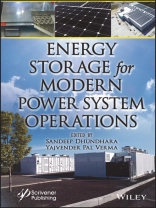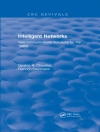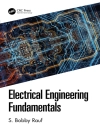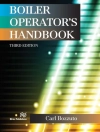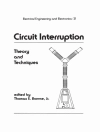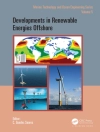ENERGY STORAGE for MODERN POWER SYSTEM OPERATIONS
Written and edited by a team of well-known and respected experts in the field, this new volume on energy storage presents the state-of-the-art developments and challenges for modern power systems for engineers, researchers, academicians, industry professionals, consultants, and designers.
Energy storage systems have been recognized as the key elements in modern power systems, where they are able to provide primary and secondary frequency controls, voltage regulation, power quality improvement, stability enhancement, reserve service, peak shaving, and so on. Particularly, deployment of energy storage systems in a distributed manner will contribute greatly in the development of smart grids and providing promising solutions for the above issues. The main challenges will be the adoption of new techniques and strategies for the optimal planning, control, monitoring and management of modern power systems with the wide installation of distributed energy storage systems. Thus, the aim of this book is to illustrate the potential of energy storage systems in different applications of modern power systems, with a view toward illuminating recent advances and research trends in storage technologies.
This exciting new volume covers the recent advancements and applications of different energy storage technologies that are useful to engineers, scientists, and students in the discipline of electrical engineering. Suitable for the engineers at power companies and energy storage consultants working in the energy storage field, this book offers a cross-disciplinary look across electrical, mechanical, chemical and renewable engineering aspects of energy storage. Whether for the veteran engineer or the student, this is a must-have for any library.
AUDIENCE
Electrical engineers and other designers, engineers, and scientists working in energy storage
Mengenai Pengarang
Sandeep Dhundhara, Ph D, is an assistant professor in the Department of Basic Engineering, College of Agricultural Engineering and Technology, CCS Haryana Agricultural University, India. He completed his doctorate in electrical engineering from Panjab University Chandigarh and has worked as a visiting research fellow at the University of Nottingham in the United Kingdom. His areas of interest are power system controls and stability, operational planning and control, deregulation and applications of energy storage systems. He has published more than 25 papers in various national and international journals and conferences and is a member of several scientific and technical societies.
Yajvender Pal Verma, Ph D, is a professor in the Department of Electrical & Electronics Engineering at UIET Panjab University Chandigarh. He completed his doctorate in electrical engineering from NIT Kurukshetra, in India. His research interest includes distributed generation, wind power integration, power system restructuring, and power system optimization. He has one book and more than 60 papers in various national and international Journals and conferences to his credit. He is also a member of a number of scientific and technical societies.
